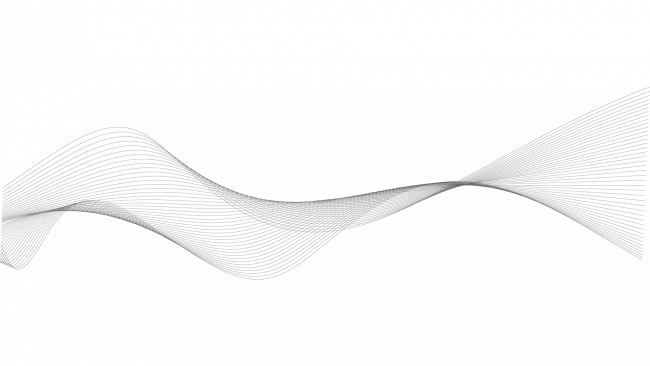Transformation of Litigation Practice through North Carolina eCourts eFiling Discovery in 2025
The transition to digital court processes in North Carolina continues at pace, with far-reaching ramifications for litigation professionals, corporate counsel, and technology providers. As we approach 2025, the integration of North Carolina eCourts eFiling and its direct impact on discovery is one of the most significant legal technology developments in the region. Thought leaders, law firms, and corporate legal departments must understand and adapt to the nuances of the evolving eCourts landscape, particularly in the context of discovery, data security, and legal operations efficiency.
The Current State and Roadmap of North Carolina eCourts eFiling
North Carolina’s statewide eCourts initiative signifies a strategic investment in digitalizing the entire litigation lifecycle. This system replaces legacy paper-based workflows with a centralized, user-friendly platform for filing, docketing, and information exchange. By 2025, it is projected that nearly all Superior and District courts across the state will be accessible via eCourts, standardizing electronic court filings, automating record-keeping, and enabling seamless access to court documents. This shift brings North Carolina in line with a national trend toward comprehensive electronic filing and case management systems, as seen in other states.
For legal practitioners, the North Carolina eCourts eFiling discovery 2025 paradigm introduces modified requirements for submission formats, metadata preservation, and the authentication of electronic documents. These standards not only streamline traditional case management but also set the foundation for more robust, predictable, and tamper-resistant discovery practices.
Discovery Protocols: Structured Data, Metadata, and Audit Trails
Discovery is central to adversarial proceedings, and the rise of North Carolina eCourts eFiling discovery 2025 amplifies the importance of proper data handling and protocol adherence. The platform’s design emphasizes structured data intake. Documents submitted through eFiling portals are time-stamped, cryptographically validated, and associated with case-specific audit trails, simplifying the process of establishing chain of custody in motions practice.
For eDiscovery teams, this operationalizes best practices for document production. Parties are now able to ensure that their filings meet both format and content requirements dictated by updated local and statewide rules. Furthermore, embedded metadata — ranging from file origination dates to digital signatures and access logs — becomes discoverable material, making it imperative that counsel not only review documents for substance but also for invisible data components that may bear evidentiary value.
As 2025 approaches, court rules are likely to evolve to address the nuances of inadvertent disclosures and metadata forensics. Lawyers and legal technologists should anticipate amendments to the North Carolina Rules of Civil Procedure and local eDiscovery guidelines, targeting the preservation, review, and exchange of metadata-rich records within eCourts workflows.
Cybersecurity, Confidentiality, and Privilege Review in a Cloud Environment
The transition to North Carolina eCourts eFiling discovery 2025 heightens concerns around cybersecurity, confidentiality, and privilege. Digital filings create additional layers of risk stemming from unauthorized access, data breaches, or compromised user credentials. Accordingly, courts and litigants must not only comply with technical safeguards, such as multi-factor authentication and encrypted transmission, but also implement policy controls aligned with ABA and state bar cybersecurity recommendations.
Privilege review also becomes more complex. Litigators will need to review filings for privileged material in both document content and underlying metadata. Given the permanence and discoverability of digital footprints within eCourts, firms must deploy advanced review protocols and employ technology-assisted review (TAR) tools capable of surfacing non-obvious data risks before documents are submitted.
For cross-jurisdictional litigators, variation in eFiling and discovery practices among different North Carolina counties during the rollout may pose additional challenges. The ability to uniformly enforce confidentiality designations and protective orders through a single, statewide platform represents a critical improvement for case teams in 2025.
Analytics and Process Automation: The Hidden Advantage
The digital backbone of North Carolina eCourts eFiling discovery 2025 offers legal professionals unprecedented capabilities in data analysis and workflow automation. Firms can now leverage analytics to track pleading frequency, motion outcomes, and even judicial tendencies across the state — insights only possible when litigation data is centralized and machine-readable.
Automated calendaring, deadline tracking, and bulk production capabilities further simplify litigation management, reducing weeks of manual effort. The system’s ability to generate granular audit logs supports post-case analytics and continuous process improvement for in-house teams and outside counsel alike. These enhancements not only support more strategic litigation planning but also drive cost efficiencies that can be passed to clients.
Strategic Considerations for the Sophisticated Practitioner
Navigating the North Carolina eCourts eFiling discovery 2025 environment demands ongoing education, technology investment, and process redesign. Law firms and corporate counsel should prioritize cross-functional teams that bring together legal, IT, and operations expertise. Training programs will need to address both the technical aspects of eCourts filings and the subtleties of data governance, privilege, and confidentiality in a digital context.
Moreover, sophisticated practitioners must proactively monitor developments in North Carolina eCourts eFiling as the judiciary continues to update local rules, court forms, and security protocols. Regulatory agility — the ability to rapidly interpret and implement new compliance requirements — will distinguish leading firms in this new era.
Looking Ahead: North Carolina eCourts eFiling Discovery in 2025
By 2025, North Carolina’s eCourts transformation is poised to catalyze a new era of legal practice, grounded in digital efficiency, transparency, and accountability. For attorneys and legal technology leaders, the implications for discovery practice are profound: data-rich filings, rigorous metadata management, and heightened cybersecurity obligations are fast becoming non-negotiable standards. Firms that proactively adapt to the realities of North Carolina eCourts eFiling discovery 2025 will not only mitigate risk, but also unlock new strategic and operational advantages in an increasingly competitive marketplace.

Based in Greensboro, North Carolina, Rob Dean with UnitedLex helps law firms and in-house legal departments solve data challenges in litigation and regulatory actions. With extensive experience in the legal tech industry, Mr. Dean is committed to delivering innovative solutions to enhance efficiency and drive success. He is a member of the Electronic Discovery Institute.
